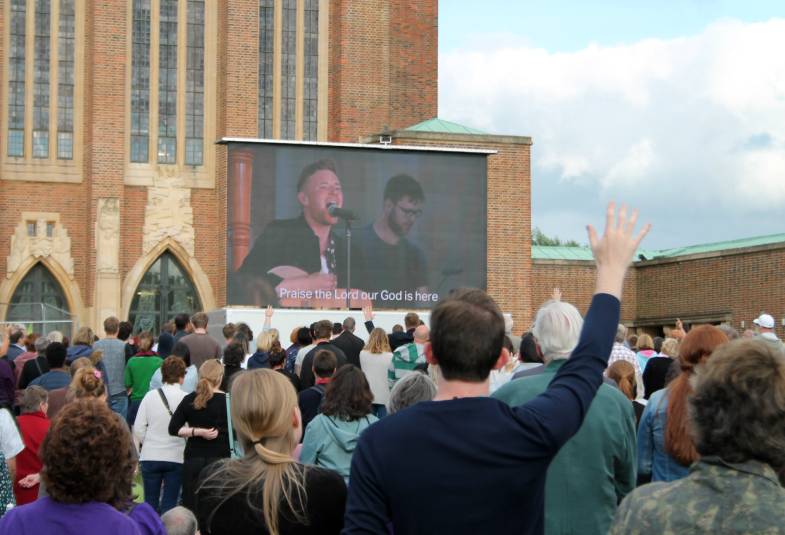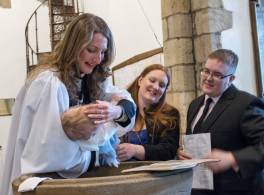
Exploring a call to ministry or religious life? Register your interest below to learn more about discerning a vocation to ministry with the Church of England.
Your diocese will be sent your message and contact details and may get in contact with the ministry team in your church. If you don’t know which diocese your church is in you can find out on A Church Near You. Your data will also be held the National Church Institutions.
Upcoming events
Who me?
A weekend conference for anyone of BAME heritage exploring a vocation to lay or ordained ministry.
Find out more about upcoming events
Seven top tips for finding your vocation
1. Praying
Vocation is a journey. It starts with prayer, and it’s important you continually pray about your vocation throughout the discernment process.
2. Talking
Others are often better at spotting your gifts than you are.
It is important to talk to someone who is experienced in helping people to work out what God is calling them to. Your vicar will be able to do this or there may be a team of people in your area. Visit your diocesan website for details.
3. Experiencing
Often, having a go at ministry can help you understand your gifts and calling better.
Try to get involved in lots of different things, including having a go at things you have never done before.
Talk to your vicar about what you might be able to get involved in. Ministers of all sorts will often be happy if you would like to accompany them for a short while to find out more about what they do.
Finding your calling can be the most satisfying experience. If you are unsure, why not commit a year to having a go at ministry and find out what God has waiting for you?
Check out our Ministry Experience year and test your vocation.
4. Studying
The Bible is full of examples of unlikely individuals called by God to do something extraordinary. Take a look at the studies in our prayer guide to explore more of what the Bible says about vocation.
Taking a course in discipleship, in the bible or in theology is a great way to work out your gifts and what you are passionate about. If you haven’t done any study before, evening courses can be a great way to build your confidence and get started. Many of them don’t require any written assessment or exam.
Ask your vicar what is available in your church, or look at the website of your diocese to see what they offer.
There are also many other places who offer teaching. You can study full time, online or through summer courses or evening courses. Look at retreat centres, theological colleges and talk to your vicar or Chaplain about what might be suitable.
5. Mentoring
We recognise that discerning your vocation can be a daunting process, made scarier by a lack of people to talk to who aren’t formally connected to the selection process. Sometimes it’s comforting just to have that solid shoulder to lean on when things get difficult!
Mentoring has been shown to be particularly effective in encouraging inclusion and diversity, so we’re building a directory of mentors for BAME Christians to offer support through the discernment process.
6. Reading
If you need some practical guidance, download our vocations reading list, which we hope will inspire you as you set out on your journey.
7. Preparing
Ready to take the next step? The first step is to talk to your vicar. Your diocese will also help to guide you through the discernment process. If you feel called to ordained ministry, take a look at our practical guidance on selection and training for ordained ministry.
Find out more about national lay ministry roles and visit your diocesan website for details on roles and training available where you are.
“There are different kinds of gifts, but the same Spirit distributes them. There are different kinds of service, but the same Lord. There are different kinds of working, but in all of them and in everyone it is the same God at work.”
1 Corinthians 12:4-6

